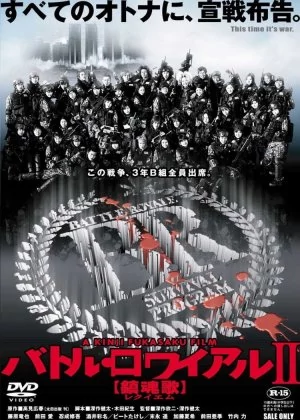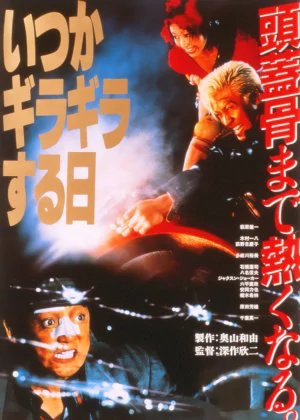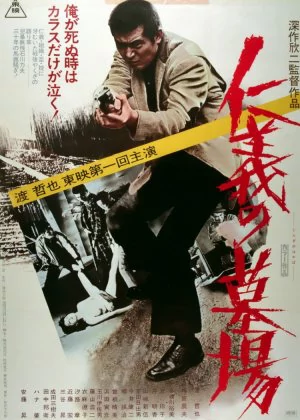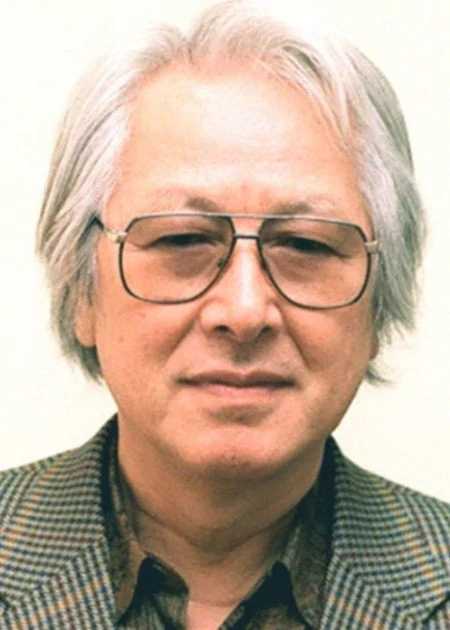
Legendary Japanese director who is one of the few to make it through the 70s (relatively) unscathed. Best known for Battle Royale and his 70s crime films, but he also made some pretty fun, surprising and off-kilter genre work.
Movies
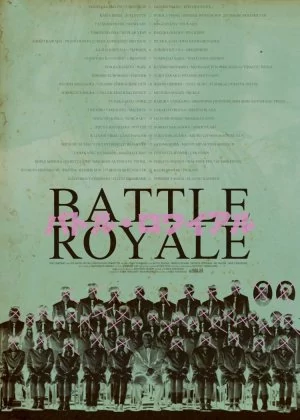
Rarely did a director have such a big impact with his very last film. Battle Royale is a cult classic, an amusing slice of mayhem that derives a lot of fun from its premise, but rises above itself with some very deliberate touches of absurdity. It's not the most refined film, but raw power, energy and wit more than make up for that.
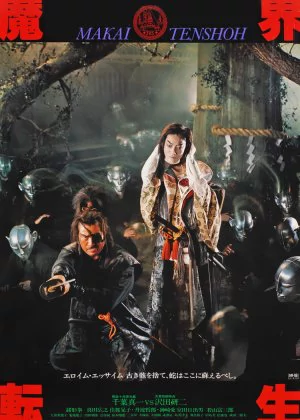
I've been avoiding Fukasaku's films for the longest time, on account of not really liking some of his Yakuza work. It turns out I've should've been watching his samurai stuff instead. Samurai Reincarnation is a pretty rad film, a mixture of classic Japanese lore, some fantasy elements and a lot of cool. Japanese mythology is quite rich and Fukasaku is happy to exploit it for this film. Quite a few famous figures are combined in this narrative, with the showdown between Musashi Miyamoto and Yubei Yagyu as the absolute highlight. Awesome sets, a creepy atmosphere and some very cool action scenes make this quite the spectacle. A very pleasant discovery.Read all
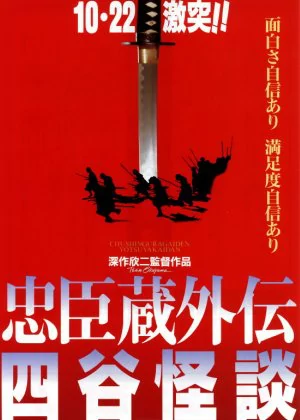
Though Kinji Fukasaku is best known for making Battle Royale and a series of 70s/80s Yakuza films, he's actually pretty competent at directing samurai films with a darker edge. Sadly, he didn't produce too many in his career, so Crest of Betrayal is a film that needs to be treasured and cherished. The first half is a little dull. A bit too much time is spent on the setup, but once all the pawns are in place and the darker and weirder second half kicks off, it's clear that Fukasaku really feels at home in this genre. Some stark, colorful imagery, decent performances and a solid ending make this another noteworthy Fukasaku flick.Read all
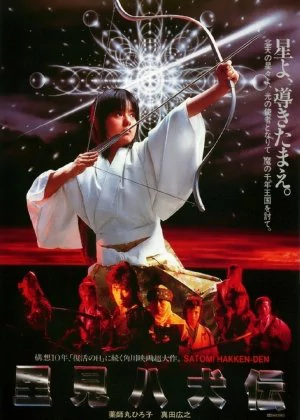
I'm not a big fan of Fukasaku's crime cinema, but I'd never seen a (blockbuster) samurai film from the man. The screenshots I found looked quite promising, so I figured I'd give it a shot. Turns out I should've given him more credit, as this was a pretty cool and entertaining (though campy) film. Princess Shizu's family is completely annihilated, but she's the ultimate target. As she flees, she runs into Shinbei, a low-ranking and inexperienced samurai. He vows to protect her, to do that he has to find the eight dog-warriors before he can face Tamazusa, the leader of the gang that is after Shizu. The sets look lush and expensive, the props (and monsters) on the other hand look rather fake. It makes for a weird mix of camp and blockbuster cinema that's pretty fun to watch. Performances are decent, the lore is pretty cool and even though the film is a bit too long, it never gets boring. Cool but cheesy.Read all
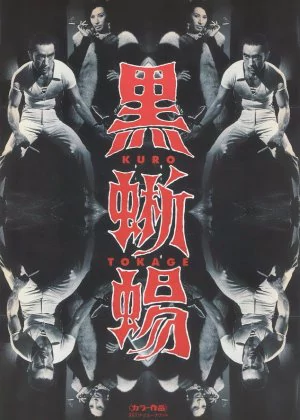
A film from the start of Kinji Fukasaku's career. Like most of his contemporaries, he made an insane amount of movies during the 60s, so it's not exactly a freshman effort. Black Lizard is based on a Rampo story, the oddness of Rampo's original work certainly shines through. The film is quirky, fun and plenty weird. A cast of quirky characters, lovely decors, a fun cat and mouse game between two cunning tricksters and some random weirdness all help to make this a pretty entertaining film. Fukasaku keeps things light and the short runtime is a big plus, even so the film does have some slight pacing issues halfway through. Better than expected though.Read all
Drifting Detective: Black Wind in Harbor
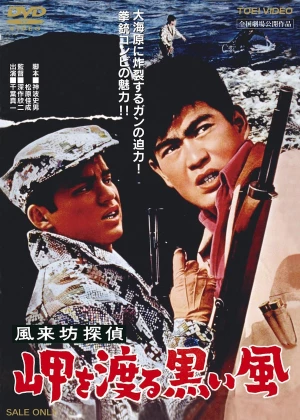
A surprisingly fun little detective movie. It reminded me a little of Kurosawa's Suit Yourself or Shoot Yourself series, which is also made up of shorter films, featuring some quirkier characters and plotlines. Alternatively, think of the Maiku Hama films. Exploring more of Fukasaku's oeuvre, I'm starting to see that he has a knack for fun genre fare. The characters are cheeky, a little over-the-top, but charming and fun. The case is pretty basic, but thanks to the short runtime there's no time for the film to slow down. The setting is also nice, though the black-and-white cinematography doesn't really do it justice. A cute little film, much better than I expected it to be.Read all
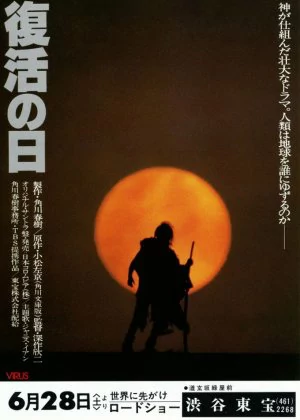
An ambitious Fukasaku film. It's rare to see a Japanese director pull off a global film project with local funds, but Fukasaku isn't your everyday director. His pandemic film is topical, though only during the first half. After that it turns into a post-apocalyptic affair that leaves little to the imagination. Fukasaku tries to put a little too much in a single film, but at least he is ambitious. The actors are somewhat flaky and the runtime's a bit excessive, the atmosphere is solid though and the finale is actually pretty impressive. It's a shame Fukasaku failed to make Virus feel just that little tighter, otherwise it would've been a pretty cool post-apocalyptic flick.Read all
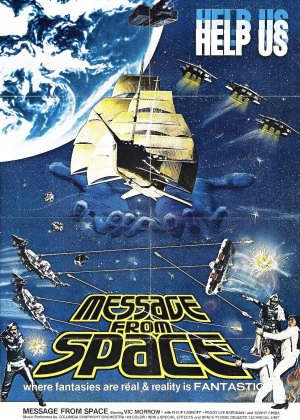
Kinji Fukasaku's take on Star Wars. When the budget and skillset isn't entirely there, all you can do is to go full kitsch, and that's exactly what Fukasaku was going for here. The result is a pretty draft and cheesy film, but because of its dedication to camp it's still pretty damn fun. Just as long as you don't expect a very serious effort. Some elements are copied straight out of Star Wars, though Fukasaku never really matches the scope and ambition of that franchise. Instead we get some kind of space theater, sporting people in silly costumes and weird make-up, dressed up with some goofy special effects. The pacing makes sure it never gets boring, but if you want to get the most out of this film, it's mostly about embracing the kitsch.Read all
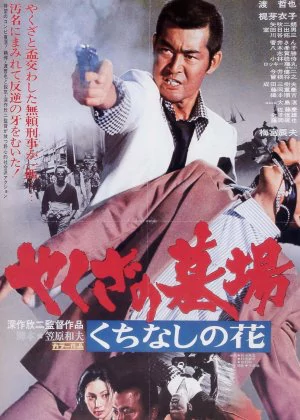
So far, I've mostly avoided Kinji Fukasaku's 70s Yakuza films. It's not really a preferred niche and the films I did sample didn't really do it for me. After a couple more positive experiences with Fukasaku's classic work, I was willing to give it another go. Yakuza Graveyard was a name I recognized, so I simply went with that one. What stands out the most is Fukasaku's dynamic cinematography. The camera jerks and twirls, giving the action scenes quite a bit of flair. The Yakuza/police drama on the other hands feels not as well-developed, which sometimes slows the film down unnecessarily. Not as bad as I'd feared, but I prefer the more contemporary Yakuza films.Read all
